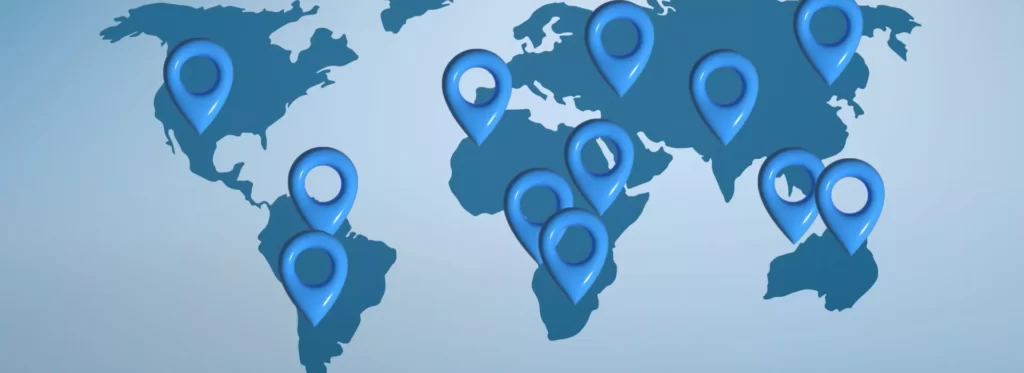Have you been thinking about pursuing a career in translation? If you are fluent in at least two languages, this profession is for you!
Having the full knowledge and ease of using one or more foreign languages gives you tons of career opportunities. Nowadays, the translation industry is prospering at a fast pace because of the inflated necessities of translation in multinational companies. Even from the smallest things like Mexican menus, Korean dramas, and Japanese anime subtitles, translation is needed everywhere, making it a highly-respected and acknowledged profession.
If you’re down to explore new things and are eager to work in different styles, being a translator would be a fantastic job for you and your linguistic skills. Moreover, each day presents you with a recent change as globalization continues to progress.
Pursue a Career in Translation
If these aren’t enough to convince you, we have prepared five more reasons why you should pursue a career in translation:
1. You are your Own Boss
Being bossed around for hours on end gets tiring. You also lose precious time that could have been spent well on yourself or with your loved ones. Unfortunately, the 9-5 is the best option you’ve got— or you’d like to think so.
If you choose to enter the translator profession, you acquire several advantages. For one, you get to work in the comfort of your home all day, wearing your home clothes or pajamas, while your brain flies off to work.
What’s more, doing what you do best doesn’t have to be a pain because your hours are yours since you get to choose when you want to work, just as long as you meet the deadline. Thus, you get the chance to explore the world not only through your work, but you can choose to do so in your free time!
2. You Get Tons of Excellent Career Opportunities With Your Linguistic Skills
You won’t have to worry about the shortage of work. Since your linguistic skills are in high demand globally, there are literally tons of opportunities waiting for you.
Connections are everywhere as well. Not only do you get to meet new people every day and stay at the top without having to overwork yourself, but you also get to work with these high-profile people directly.
There is no limit to how far you can go on your career path, so the sky is really the limit for you. You can also attend to different work possibilities, especially if you choose to be a freelance translator. So, with more opportunities, your profit also goes nowhere but up!
3. You Have the Chance to be Creative in Your Own Right
You’ll definitely be able to utilize your creativity when you choose to pursue a career in translation. Since your mind will always be pushed to go outside of the box due to the variety of words you need or want to use, you aren’t going to run out of creative juices as you really need to think and be dynamic.
Additionally, you also have the freedom to choose whatever would make dialogues, texts, and the like creative and intriguing. The translation is an endless process of expressing and understanding, and you will also be exposed to this adventure-filled field upon choosing this path.
4. You Can Finally be Independent
Do you think it’s difficult and frustrating for you to work with others? Then this is probably the perfect job for you. Translation jobs require people with inquisitive and determined minds who are skilled in working independently. Considering how you will be dealing with various topics and encountering different challenges alone, this job will keep you up to shape.
You also have to continue learning language rules and vocabulary in order to meet modernization, so not only will you have to work well alone, but you also improve yourself and your skills.
5. You Can Serve as a Bridge Between Two Societies
People from all ages and different eras have had trouble expanding their reach beyond their own borders because of the language barriers that constantly proved an insurmountable challenge.
Additionally, many good works like films, literature, and other pieces of art have gone neglected because of the obstacles of different languages.
Now, this is where you come into the picture. Since you are gifted with the skill of knowing and understanding languages, you get to become the bridge that brings different societies together.
Where Do Translators Work?
Have you finally decided to take on a translation career? Now take a look at some of the places you might work in the future:
- Government departments and agencies
- Publishing houses
- Worldwide charities
- International organizations (e.g., NATO, The Red Cross, the United Nations, etc.)
- Think tanks
- European Union organizations
- Colleges and Universities
- WADA, International Olympics Committee, FIFA, and many other global sporting organizations
- International trade organizations
- Global symposiums
- International forums
- and many more
Pursuing a career in translation is gratifying. Unlike many occupations that vanish because of the constant advancement of technology, translation jobs still require humans to work. Thus, if you work hard to become a qualified, professional translator, it is definitely a career that you should follow in the long run.
Those are the top five reasons why you should consider a career in translation. Despite the challenges presented before you become a successful translator, always think of the various benefits and rewards that could help achieve your goals as you seek your passion. Hopefully, this will spur you to pursue what is potentially an enriching path.
Pursue a Career in Translation (FAQs)
A translator is someone who converts the written word from one language to another. A translator is required to be fluent in English and at least one or two languages. Sometimes, translators require to have a bachelor’s degree as well, although, some of them complete job-specific training programs instead.
A translator is someone who is specially trained to convert written text from one language to another. An interpreter, on the other hand, is someone who is specially trained to convert oral messages from one language to another.
To be a good translator, one must have excellent knowledge of the source language and mastery of the target language to accomplish the required standard of clarity and accuracy. In order to ensure accurate and proper translation, the target language should ideally be the translator’s native language.



